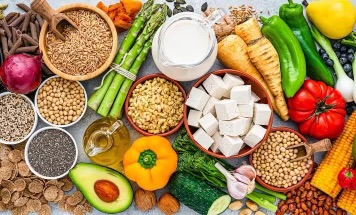Being vegan means not consuming any food that comes from animals, such as meat, eggs, or dairy products. Some people suggest that by 2030, most people in the world will be vegan. This idea is based on the belief that limited resources will change human nutrition habits and force people to adopt a vegan lifestyle.
When we are vegan, we may not get essential protein sources like meat and eggs, whose absence can cause muscle and bone weaknesses, as well as B12 deficiency. On the other hand, to save the planet, the excessive consumption of animal products should be reduced. I believe the best option for humans is to have a balanced diet that includes some animal products.
On January 7, 2019, in an interview on the NPR show 1A, Professor Willett, an expert in epidemiology and nutrition, said that it’s not necessary to be 100% vegan to enjoy plant-based meals, which can lower the risks of heart disease and type 2 diabetes. Diets with reasonable amounts of dairy and meat can also be healthy, as long as people eat sufficient fruits, vegetables, nuts, seeds, and whole grains. Willett also mentioned that veganism is beneficial for the planet, as it helps reduce potent greenhouse gases that contribute to climate change. “I think if we really care about the world our children and grandchildren will inherit, we do need to shift toward [a vegan diet],” Willett said. “And the good news is that it’s not just our planet that will be healthier.”
Finally, I think people should not be forced to be vegan.

